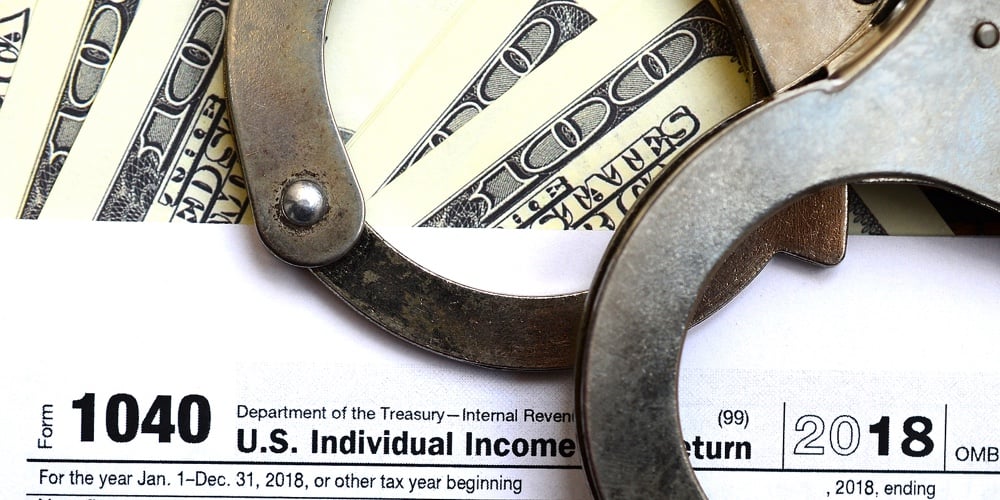Prevalent tax scams: Education and prevention for members

Last month, the Internal Revenue Service (IRS) announced 2020 federal income tax filing deadlines for individuals would be extended from April 15 to May 17 in response to the ongoing recovery efforts surrounding the COVID-19 pandemic, and to help provide taxpayers some ongoing relief.
In the midst of a busy tax season, it’s important to be reminded that with the flurry of tax deadlines comes the increase of fraud attempts and tax scams. Annually, the IRS shares and emphasizes certain ‘aggressive and evolving schemes’ that may be at particular risk to taxpayers. This year, schemes related to coronavirus tax relief continue to be a burden that target taxpayers.
By raising awareness, credit unions can help inform and protect their members. Since tax scams are a particular threat this time of year, it is especially important that your members know how to protect themselves from these prevalent attacks. Especially as extensions can create some confusion and make members more susceptible to fraud attempts.
What do these scams look like?
Tax scams continue to evolve as scammers find new, creative ways to defraud taxpayers. Unfortunately, attempts have only increased with COVID-19 recovery and stimulus relief as frausters prey on challenging times to exploit others. The IRS recently listed the following as different tax scams that pose major threats and are important to be aware of in this 2021 tax season.
- Phishing Scams: Taxpayers should be alert to potential fake emails, texts, phone calls, or websites looking to steal personal information.
- Phone Scams (or “vishing”): These scam phone calls work hard to instill a sense of urgency, including those threatening arrest, deportation, or some kind of retaliation if a tax bill is left unpaid.
- Charity Scams: These schemes share bogus information about a charity to trick people to send money or provide personal information. This is attempted with a fake website, using names similar to legitimate charities, or unsolicited communication.
- Social Media Scams: Social media scams frequently use events (like COVID-19) to try tricking people to disclose personal information. Typically this involves convincing a potential victim they are dealing with a person they trust via email, text or social media messaging.
- Refund Theft Scams: Refund and Economic Impact Payments (EIP) as provided by the Coronavirus Aid, Relief, and Economic Security (CARES) Act have been targeted in recent scams with identity theft and filing false tax returns to divert funds to the wrong address or bank account.
- Elder Fraud: Seniors are more likely to be targeted and victimized by scammers than other segments of society due to unfamiliarity or uncertainty on how to respond across digital channels.
- Offer in Compromise (OIC) Scams: Misleading tax debt resolution companies can exaggerate chances to settle tax debts through an Offer in Compromise (OIC) and submit applications for unqualified candidates. OIC offers are available for a bill reduction, but taxpayers must meet very specific criteria under law to qualify.
- Payroll and HR Scams: Phishing schemes are designed to steal Form W-2s and other tax information. This has grown with many businesses closed and their employees working from home due to COVID-19. W-2 forms contain a lot of sensitive information and are highly valuable for identity thieves.
- Ransomware Scams: This cybercrime targets human and technical weaknesses to infect a potential victim’s computer, network, or server. Once infected, ransomware looks for and locks critical or sensitive data with its own encryption.
Tax Scam and Fraud Prevention Tips
Educating your employees and members about these crimes can help reduce the risk of falling victim to these crimes. It is just as important to train staff and members on tax scam warning signs and prevention methods, so they are equipped to detect and report an attack.
Consider these preventative tips to keep your employees and members educated on how tax scams can occur and impact them.
- Be cautious of any communication: Communication requesting personal or financial information – tax related or otherwise – should be treated with caution. Members should know that the IRS and state tax authorities would never reach out by phone, email, text, or social media.
- Pay attention to how money is requested: The IRS never requires that taxes or bills be paid with a prepaid/reloadable debit card, gift card, or money wires through services like Western Union or MoneyGram.
- Report threatening or demanding messages: Calls demanding immediate payment or threatening legal action are likely scam attempts. The IRS or State will not call to discuss taxes you owe without first mailing you an official bill.
- Don’t open any attachments or click on any links: Especially, if you have suspicions about the communication source as they may contain a malicious code or virus that will infect your computer. Cybercriminals might use a phishing email to trick a potential victim into opening a link or attachment containing the ransomware.
- Be wary of rejected file requests due to duplication: If an e-filed return is rejected because a duplicate EIN/SSN is already on file with the IRS or an unexpected receipt of a tax transcript doesn’t correspond to anything previously may be a warning sign of identification theft.
If a scam is suspected, report it to your state authorities and/or the Federal Trade Commission here.
The IRS also provides resources to consumers to share tax scam education and fraud prevention safety measures. You can find these consumer alerts here.
Click here to learn more about how Allied Solutions is helping our industry prevent and manage fraud.





